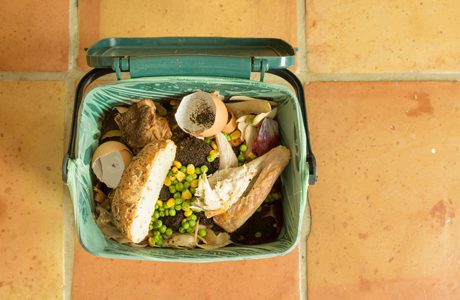
England’s first action plan designed to increase the quantity and quality of household and commercial food waste collected and recycled, was launched on 7 July at the ADBA Conference in Birmingham.
The Food Waste Recycling Action Plan developed by industry* – including local authorities, waste treatment operators, private sector waste collectors and industry bodies – will increase the amount of food waste collected and recycled by promoting greater collaboration across the food waste recycling supply chain. Presented as a five-point plan, it highlights the current barriers to food waste recycling and practical solutions to overcome them as cost effectively as possible.
Food waste prevention and redistribution will remain a priority, but despite the UK’s best efforts, there is still 10 million tonnes of ‘post-farm gate’ food wasted across the UK every year, 40% of which is unavoidable. However, just 1.8 million tonnes is recycled. Increasing the volume recycled brings significant economic and environmental benefits. For example, by maximising available anaerobic digestion and composting capacity to produce valuable energy and renewable fertilisers, as well as reduce the 20 million tonnes of carbon produced annually by this food waste. Recycling more food waste could also boost England’s plateauing recycling rate.
The action plan supports local authorities already active in food waste recycling – helping them to cost effectively maximise their food waste collections, and local authorities thinking about adding a collection. It also helps operators of food waste treatment plants play their part in securing the long term supply of food waste, at a quality required for their operations.
Rory Stewart, Defra Resources Minister, said: “A staggering 10 million tonnes of food waste is thrown out every year. Not all of this food waste can be prevented or redistributed and this is where the food waste recycling sector has an important role to play in reducing the amount that goes to landfill.
“The growth of the food waste recycling in the UK is a real success story, but more can be done. I welcome the Action Plan, showing how by working together, industry, government, businesses and local authorities can drive up the amount of unavoidable, inedible food waste that is recycled, helping our environment and boosting our economy.”
Marcus Gover, CEO at WRAP, said: “Preventing food waste sits at the heart of what WRAP does, but after we’ve done all we can to prevent and redistribute it, the focus has to shift to recycling. There are significant volumes of food waste still ending up in the residual waste stream. This is a massive loss of resources. The action plan recognises the shared interests and common benefits to collecting and recycling more of the food waste we can’t prevent and avoid. This can only be realised by the sector working together. The plan provides the road map for industry to do just that and I urge everyone to take a look at it and see what they can do.”
Charlotte Morton, Chief Executive of the Anaerobic Digestion and Bioresources Association (ADBA), said: “The Food Waste Recycling Action Plan has been a positive, collaborative process between government, WRAP, trade associations, AD operators and local authorities. It sets out a series of practical actions which will help increase the capture and recycling of food waste which cannot be eaten.
“The AD industry is delighted that Defra Minister Rory Steward has engaged in the plan, and welcomes his wider recognition that food waste policy is important for the UK’s economy and carbon budgets.
“ADBA is pleased to have been part of the steering group which has produced the FWRAP, and looks forward to continuing to work with partners to deliver the actions it has set out.”
Ray Georgeson, Chair of the Steering Group, said: “Finding a clear and concise path to improved food waste collections was never going to be easy, but I am delighted by the response of the Steering Group. They have risen to the challenge and we’ve produced a succinct and realistic action plan, which is the industry’s collective response to the barriers holding back growth in food waste recycling. I look forward to seeing us use these actions to deliver tangible change.”
The actions are grouped under five distinct themes: 1.Developing the business case; 2. Optimising food waste collections; 3. Communicating with householders and commercial food waste producers; 4. Ensuring quality as well as quantity; and, 5. Making contracts work. Each action is assigned to a lead body responsible for coordinating its delivery. To view the action plan, please visit: www.wrap.org.uk/foodwasterecycling.







